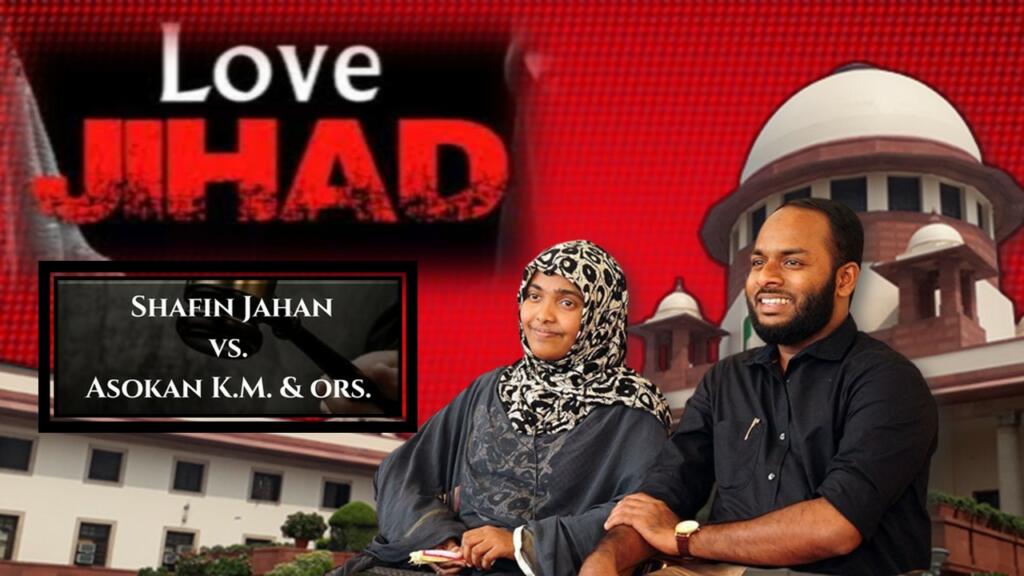Akhila Hadiya case: The nation has been engulfed with an upsurge in the victimization of young girls under the guise of love. Evidently, the entire debate of ‘love jihad’ is centered on the vision to protect the amateur youth from falling in the trap of a larger conspiracy.
On the contrary, every case cannot be packaged in the water-tight compartment of ‘love jihad’. The veracity of facts, therefore, plays a key role in alienating love from jihad. Intrinsically, the responsibility is bestowed on social institutions to uphold the ‘right to choose partner’ without fail.
Right to choice of partner intrinsic to Article 21
Do you have the option to pick your partner? What part does society play in finding you a soul mate? These are some of the intriguing questions that are relevant to every civilization around the globe. However, most of the social institutions in the endeavor to come up with a solution are intrinsically biased against the rights of women to choose.
The sorry state of affairs restricts the women’s freedom of choice and infuses in the society with patriarchal despotism. Contrarily, demolishing the notions of patriarchal autocracy, the Supreme Court of India came up with a progressive judgment in Shafin Jahan v. Asokan K.M in 2018.
In the instant Akhila Hadiya case, the 3-judge bench of Chief Justice Dipak Misra, Justice AM Khanwilkar and Justice DY Chandrachud, iterated that the right to marry a person of one’s choice is integral to Article 21. Consequently, upholding the veracity of constitutional promise of right to life and liberty, the Apex Court sets aside a 2017 order of the Kerala High Court which annulled the marriage of newly-convert Hadiya with Shafin Jahan.
Factual Backdrop of the Akhila Hadiya case
The case arose when Akhila alias Hadiya, aged 24, had converted to Islam after she came in touch with two of her friends, Jaseena and Faseena during her educational pursuit of Bachelor of Homeopathic Medicine and Surgery (BHMS) degree. Later, she broke ties with her father Asokan and continued to stay with her friends.
Through them she met with Shafin, and married him out of her own free will. On the other hand, her father filed a writ of habeas corpus before Kerala High Court in January 2016, under the apprehension that she might have been abducted and exported abroad.
The Kerala High Court in its impugned order, exercised the ‘parens patriae jurisdiction’ and held that the girl was vulnerable and incapable of making rational choice; therefore, gave her custody to her parents. The court permitted her to continue her educational pursuits, but held:
“Her marriage being the most important decision in her life can also be taken only with the active involvement of her parents. The marriage which is alleged to have been performed is a sham and is of no consequence in the eye of law.”
Consequently, the matter was put forth before the Apex Court for consideration.
Also read: Mobarik Ali Ahmed vs State of Bombay, 1957: Foreign nationals under the grip of IPC
Dictum of the Apex Court
Chief Justice Deepak Misra pronounced the judgment for himself and Justice Khanwilkar and observed that the High Court erred in its decision as the Constitutional Court is supposed to be the guardian of fundamental rights, and in refusing to recognise Hadiya’s decision to make her choice of free will, would only cause discomfort to her constitutional right. He therefore exclaimed:
“The exposé of facts in the present case depicts that story giving it a color of different narrative. It is different since the State that is expected to facilitate the enjoyment of legal rights of a citizen has also supported the cause of a father, an obstinate one, who has endeavored immensely in not allowing his daughter to make her own choice in adhering to a faith and further making Everestine effort to garrotte her desire to live with the man with whom she has entered into wedlock.”
Also read: Tukaram vs State of Maharashtra: The case whose aftermath introduced misandry in IPC
On similar line, Justice Chandrachud too admonished the approach of the High Court in his concurring judgment and held:
“The schism between Hadiya and her father may be unfortunate. But it was no part of the jurisdiction of the High Court to decide what it considered to be a ‘just’ way of life or ‘correct’ course of living for Hadiya. She has absolute autonomy over her person. Hadiya appeared before the High Court and stated that she was not under illegal confinement. There was no warrant for the High Court to proceed further in the exercise of its jurisdiction under Article 226.”
The National Probe Agency (NIA) was nonetheless given permission by the court to continue its investigation into any potential criminal activity. However, the legitimacy of Shafin Jahan and Hadiya’s union will not be the focus of the investigation.
Also read: 2018, Navtej Singh Johar Vs Union of India: The day India decriminalised homosexuality
Insinuation of the Judgment
The judgment categorically held that the ‘choice of a partner whether within or outside marriage lies within the exclusive domain of each individual’. Therefore, the court advocated that the ‘intimacies of marriage lie within a core zone of privacy, which is inviolable’ and falls within the parameters of Article 21 and cannot be dwindled away by a verdict of the court. That is to say, the judgment paved way for upholding the rights of consenting adults to make a choice of partners out of there free will.
Support TFI:
Support us to strengthen the ‘Right’ ideology of cultural nationalism by purchasing the best quality garments from TFI-STORE.COM
Also Watch:
https://www.youtube.com/watch?v=mLsJgD5bmns
